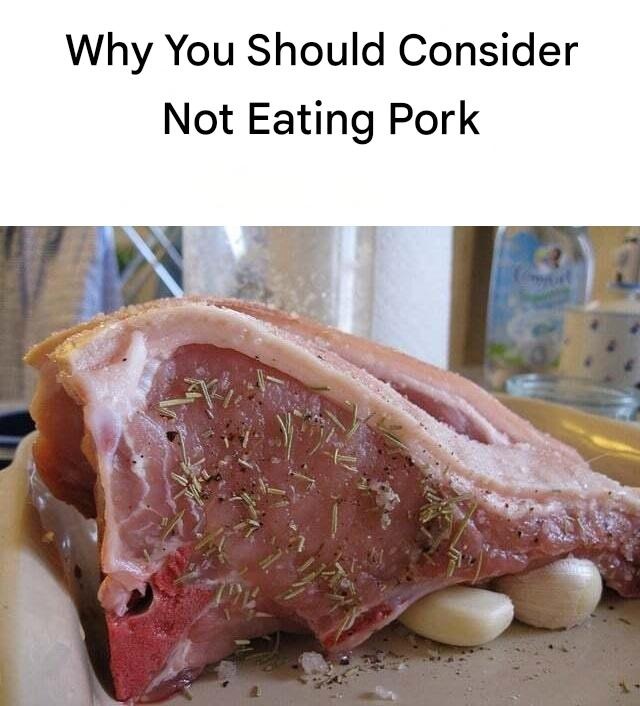ADVERTISEMENT
#### a) **Plant-Based Protein Sources**
There are a variety of plant-based proteins that can provide the same nutritional benefits as pork without the health risks, ethical concerns, and environmental impact. Some excellent plant-based protein sources include:
– **Tofu**: Made from soybeans, tofu is a versatile, protein-rich substitute for pork in many dishes.
– **Tempeh**: Another soy-based product, tempeh is firmer than tofu and has a nuttier flavor.
– **Legumes**: Beans, lentils, and chickpeas are great sources of plant-based protein and can be used in a variety of dishes.
– **Seitan**: Made from wheat gluten, seitan has a chewy texture similar to meat and can be used in stir-fries, sandwiches, and more.
#### b) **Ethically Raised Meat Alternatives**
If you prefer to continue eating animal products but want to make more ethical choices, consider purchasing pork from farms that prioritize animal welfare. Look for labels such as **Certified Humane** or **Animal Welfare Approved**, which indicate higher welfare standards for the animals. Pasture-raised pork, where pigs are allowed to roam freely and live in less crowded conditions, is another option to consider.
#### c) **Sustainable and Regenerative Agriculture**
For those who want to minimize their environmental impact, seeking out meat produced through sustainable farming practices is essential. Regenerative agriculture focuses on restoring the health of the soil and ecosystems while raising animals in a way that benefits the environment. By supporting regenerative farms, you help promote a more sustainable food system.
### Conclusion
While pork has been a staple in many diets around the world, there are compelling reasons to reconsider its place in your meals. From health concerns related to saturated fat, cholesterol, and cancer risk, to ethical issues surrounding factory farming and animal welfare, to the significant environmental impact of pork production, there are many factors to weigh when deciding whether or not to eat pork.
By exploring plant-based alternatives, ethically sourced meats, and supporting sustainable farming practices, you can make choices that align with your health, ethical values, and environmental concerns. Whether you choose to eliminate pork entirely or reduce your consumption, making informed decisions about what you eat can contribute to a healthier, more sustainable, and more compassionate world.
